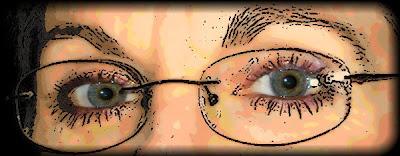"Keep on praying." 1 Thessalonians 5:17 (NLT)
GUILT. Many Christians I've talked to equate this word with their prayer life, and I can relate.
I used to feel guilty because people would ask me to pray, or I would volunteer to when I heard they were going through something difficult. With a heart of compassion, I'd reply, "Oh, I'll pray for you!" And I fully intended to. But then I'd forget ... get busy ... say that to five other people in the meantime ... and often never get around to doing it despite my good intentions. I'd put off praying in the moment, in favor of waiting until I had a big chunk of time to spend in prayer. Then life would happen and that chunk of time wouldn't materialize. By the time I carved some out, I couldn't remember all I'd intended to pray about.
One of the perceptions I had about prayer was that I needed to spend a lot of time in prayer in order to do it "right." I thought short prayers wouldn't have much power or impact. Then I noticed something that shifted my thinking. In Matthew chapter six, Jesus is teaching about prayer. He says, "When you pray, don't talk on and on as people do who don't know God. They think God likes to hear long prayers. Don't be like them. Your Father knows what you need before you ask" (Matthew 6:7-8, CEV). Wow, so I don't have to talk for hours, coming up with many ways to phrase my petitions? It was so freeing to see this coming from Jesus' lips.
That was followed by another ah-ha moment. In the next verse, Jesus said: "You should pray like this: Our Father in heaven, help us to honor your name. Come and set up your kingdom, so that everyone on earth will obey you, as you are obeyed in heaven. Give us our food for today. Forgive us for doing wrong, a s we forgive others. Keep us from being tempted and protect us from evil " (Matthew 6:9-13, CEV). This is often called "The Lord's Prayer."
Pause, look at the clock, and then say the Lord's Prayer aloud. Now check the clock again. How long did that take? This was Jesus' illustration of how to pray - so what does that tell us about feeling we need to pray l-o-n-g prayers to be effective? Hear me on this, I do believe there are needs that call for extended time in prayer (see Jesus' time in the Garden of Gethsemane in Matthew 26:36-46 for instance). But many things can be prayed for in short prayers as we move through out our day.
Now, when a friend sends me an email with a troubled story, I rarely respond by saying, "I will pray for you." Instead, I pause and pray for her before hitting reply to say, "I have prayed for you." If someone calls me on the phone, or tells me in person about their prayer need, more often than not I'll offer to pray with them right then. If I encounter a reason to pray while reading the newspaper, or reading scripture, I do it in the moment. My aim is not to be lengthy and elaborate with these prayers, but rather to do it while my mind is on it.
If I feel the need to pray for someone repeatedly or over time, I follow through with my carefully considered plan because I've gotten more intentional about this prayer thing. But deciding several years ago to pray short, in the moment prayers was key for me. It is very doable way of "praying continually" and it helped relieve a lot of feelings of failure, pressure and guilt. Most importantly, this ensures that people's needs are in fact being prayed for - which is the ultimate goal, right?
I'm convinced the Enemy often keeps us from praying by getting us to procrastinate until later, making us think we need more time or more words to do this thing "right." As I read the Bible, I see instructions to pray frequently, to pray with faith and persistence, and to pray over all our cares and concerns. But I do not see that we must talk for hours over each request for God to hear them. I hope that does for you what it did for me – replaces feelings of guilt with a renewed passion to pray.
Dear Lord, help me to pray frequently and persistently with faith, in accordance with Your will. In Jesus' Name, Amen.


















